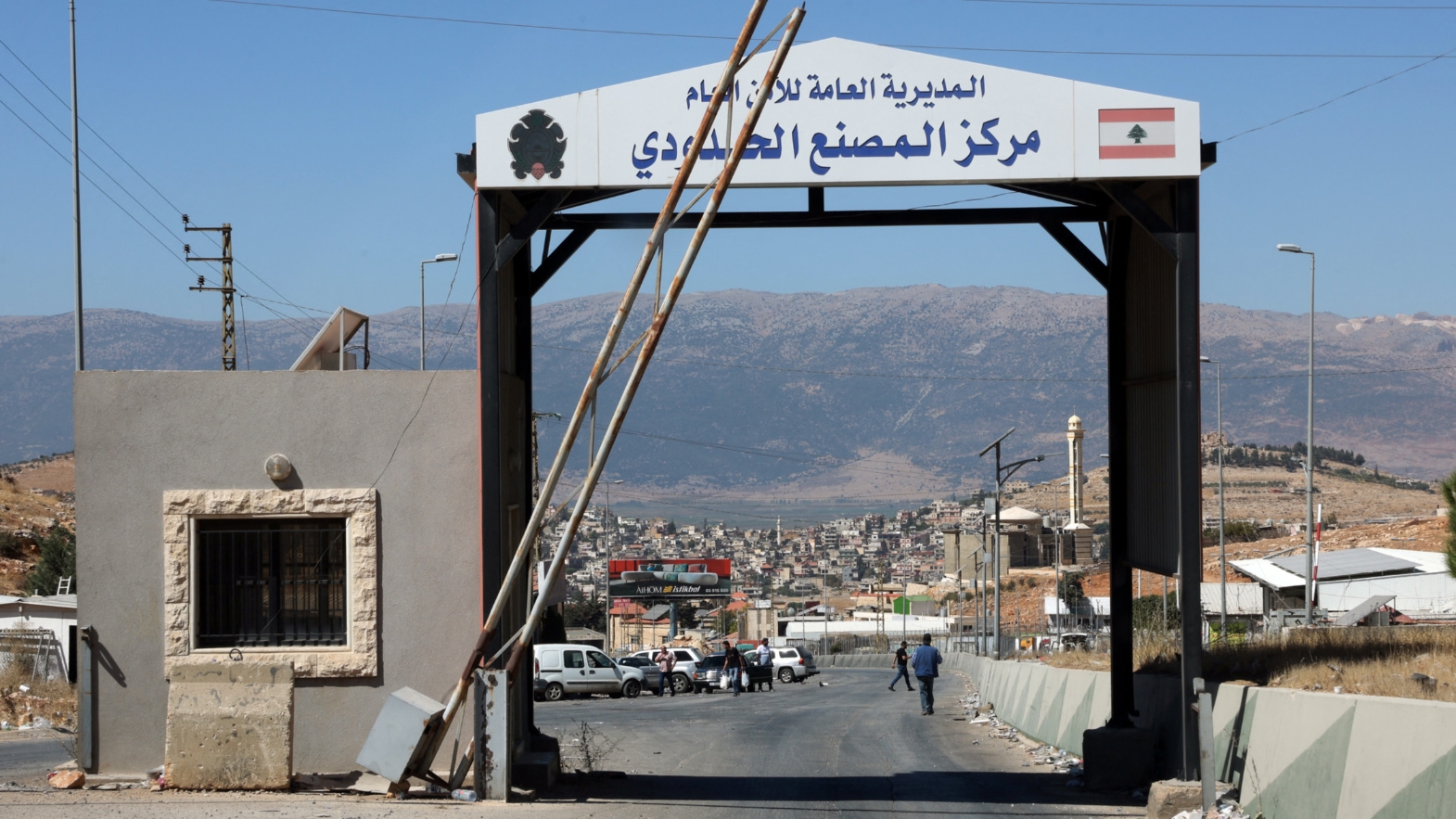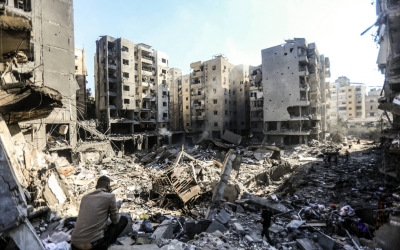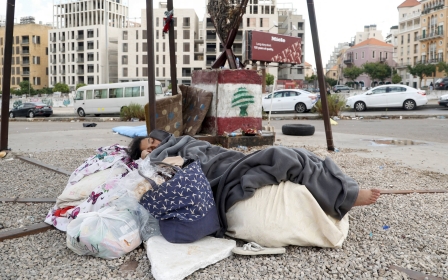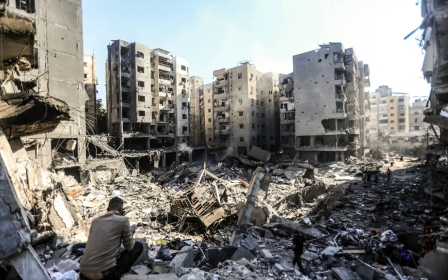Is Israel imposing a blockade on Lebanon?

Israel’s bombing of the highway near Lebanon’s Masnaa border crossing with Syria has completely halted the flow of traffic on the key artery.
Hundreds of people initially attempting to escape Lebanon by car are now being forced to make their way by foot, according to the UN.
Lebanon’s Transport Minister Ali Hamieh told Al Jazeera that Israel was imposing an “unannounced siege” on Lebanon, particularly on land and in the air.
The attack comes a day after the Israeli army had claimed the crossing was being used by Hezbollah to smuggle weapons.
Israel previously also threatened to “not allow hostile aircraft carrying weapons to land at the civilian airport in Beirut”, which some had perceived as a threat against the only operational commercial air terminal in Lebanon.
New MEE newsletter: Jerusalem Dispatch
Sign up to get the latest insights and analysis on Israel-Palestine, alongside Turkey Unpacked and other MEE newsletters
Hamieh himself told an Iranian aircraft to not enter Lebanon’s airspace after Israel’s statement, and most international airlines have cancelled or diverted their flights to Lebanon.
Why did Israel strike near Masnaa?
Imad Salamey, a Middle Eastern politics expert at the Lebanese American University, told Middle East Eye that Israel’s primary objective behind its strike near the Masnaa crossing was “to disrupt and sever key supply lines between Syria and Lebanon, which it believes are used to transport arms and logistical support to Hezbollah”.
“Israel has little trust in the Syrian or Lebanese customs and security forces, viewing them as complicit collaborators with Hezbollah,” he said.
“By cutting off these supply routes, Israel aims to weaken Hezbollah’s ability to replenish its arsenal and ensure that no new weapon shipments reach the group.”
'Lebanon is being cut off from the rest of the world and subjected to a new form of occupation'
- Imad Salamey, Lebanese American University
However, Israel’s attack on the only legal crossing to Syria also severely hampers civilian and commercial transit.
“Israel is not just controlling military activities but is also exerting influence over civilian and commercial transportation, determining what goods and personnel can enter or leave the country,” Salamey said.
“This situation has left Lebanon’s fate largely in the hands of Israel, as it now controls much of the country’s access to the outside world.”
Over 160,000 people have left Lebanon for Syria since Israel last week ramped up its bombing campaign and began a ground invasion.
Masnaa was Lebanon's only fully functioning land border exit and there is severe need for Lebanese land access to commercial goods and aid.
Wadih al-Asmar, president of the Lebanese Centre for Human Rights, said the attack on the crossing is therefore “a violation of human rights and international law”.
“Israel is creating its own narrative to commit their crimes,” he said.
Is Lebanon truly under a blockade?
Johnny Khalaf, a retired Lebanese army general, told MEE that what Lebanon is going through now is “not a literal blockade”.
“The air and sea are still open,” he said, adding that “they would have shut down the airport, the sea and the Arida area that links Syria to the north” for Lebanon to be fully besieged.
While the road near Masnaa is expected to be fixed, allowing for land routes to reopen, Khalaf said that Israel “harmed the Lebanese and Syrians who are going through this crossing more than they harmed Hezbollah”.
“I do not think Hezbollah is wandering around militarily, since [the Israelis] are spying on them on every road, from Masnaa all the way to Beirut’s southern suburbs, Beirut or the south,” he added.
Asmar added that while it is known that Hezbollah transfers arms to Lebanon through Syria, “they don’t transit by legal ways”. Lebanon's border with Syria is 400km long and notoriously porous and often mountainous.
Human rights implications
Khalaf does not expect a full blockade of Lebanon to take place, arguing that Lebanon’s airport remains important for international actors such as the United States.
Should attacks on land routes continues, though, the situation may get riskier.
As 70 percent of those leaving for Syria are Syrians, many of whom are refugees who fled their country’s civil war, Asmar argues they could be under a greater risk if Israel continues going after official crossings.
Many of the refugees who fled the war choose not to return out of fear of persecution in Syria, but they “now see the risk of being killed by Israel as higher”, according to Asmar.
“Cutting off the regular way to go back to Syria will push those people to be the victims of smugglers, and to be at a higher risk of being bombed by Israel here,” he said.
Salamey sees similarities between Lebanon and Gaza in the way Israel tries to impose itself as the controlling power over what gets in and out of the country, though he does not see the situation to be as extreme as the Palestinian enclave’s.
“By disrupting supply lines, targeting critical infrastructure, and controlling air traffic, Israel is effectively isolating Lebanon and reducing it to a state of dependency,” he said.
“Lebanon is being cut off from the rest of the world and subjected to a new form of occupation, where its sovereignty is undermined, and its ability to function as an independent state is severely constrained.”
Middle East Eye delivers independent and unrivalled coverage and analysis of the Middle East, North Africa and beyond. To learn more about republishing this content and the associated fees, please fill out this form. More about MEE can be found here.





